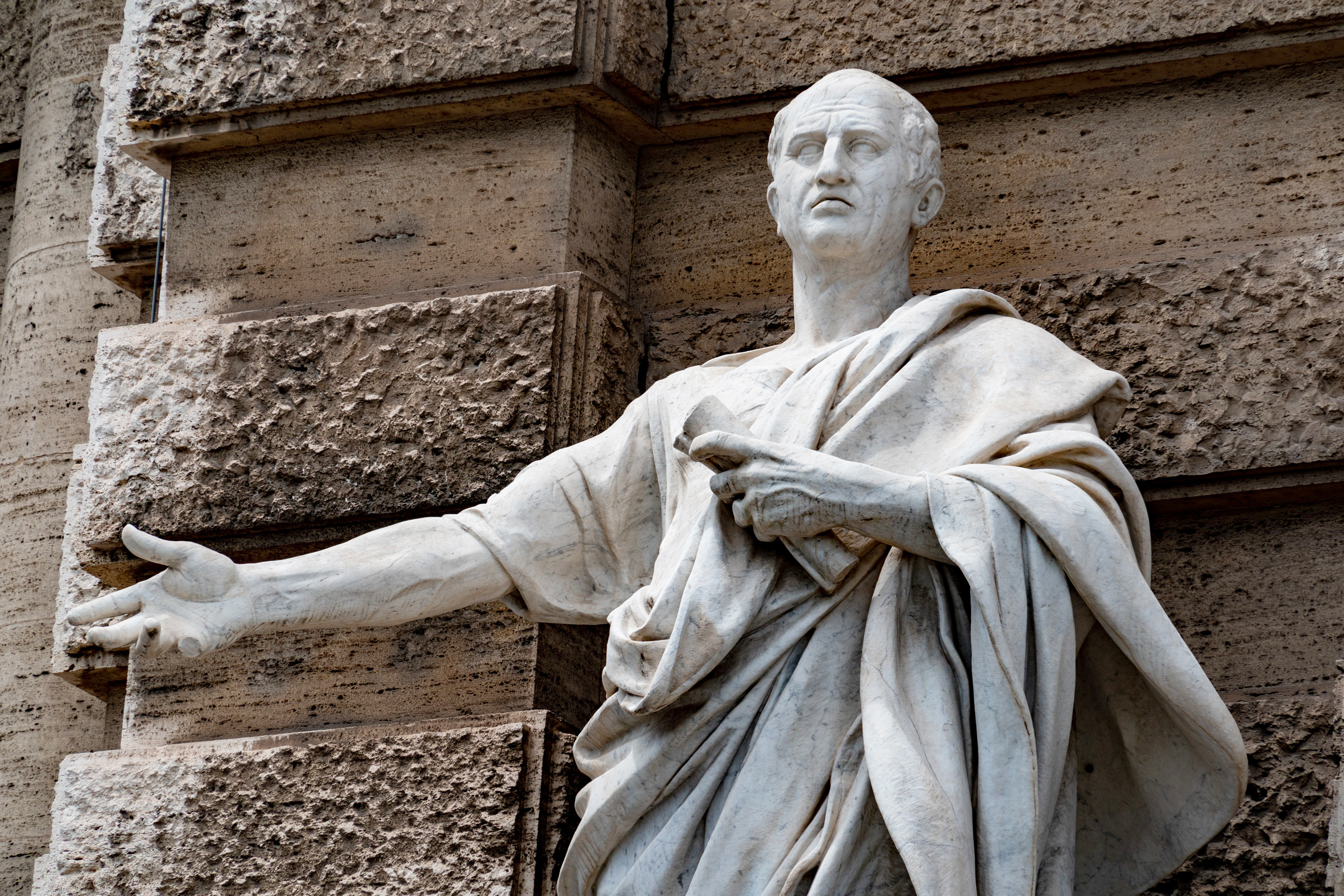Cicero, Marcus Tullius << SIHS uh `roh,` MAHR kuhs TUHL ee uhs >> (106-43 B.C.), was an outstanding Roman senator, orator, and writer. He was one of the most influential and productive Latin authors.

Life.
Cicero was born on Jan. 3, 106 B.C., in Arpinum, Italy, to a locally prominent family. Cicero’s father had high ambitions for his sons, so Cicero studied philosophy and rhetoric (the art of using words persuasively) in Rome , Athens , and Rhodes . Cicero became the first person in his family to hold public office in Rome and to become a senator. He won distinction in 70 B.C. by successfully prosecuting Gaius Verres, a corrupt ex-governor of Sicily. During the 60’s B.C., Cicero supported the Roman general and statesman Pompey . Cicero was elected as consul (the Roman Republic’s highest office) for 63 B.C. at the youngest age permitted. It was a remarkable achievement for a newcomer to Roman politics. As consul, Cicero saved Rome from a revolution planned by Catiline . However, he rashly had five of Catiline’s associates executed without a trial.
The political alliance called the First Triumvirate , formed by Pompey, Marcus Licinius Crassus , and Julius Caesar in 60 B.C., greatly dismayed Cicero. He rejected an invitation to join it because of his devotion to the republic. As a result, he lost influence, and was exiled from 58 to 57 B.C. Cicero strove to be a model governor of Cilicia (now in southern Turkey) in 51 and 50 B.C., and even commanded troops on military campaign there. Civil war broke out in Rome in 49 B.C. Cicero reluctantly sided with Pompey against Caesar. Caesar defeated Pompey in 48 B.C., became dictator, and pardoned Cicero. Even so, Cicero hated Caesar’s dictatorship.
After Caesar’s assassination in 44 B.C., Cicero hoped in vain that the Senate might regain its traditional authority. He schemed to eliminate Mark Antony , Caesar’s fellow consul, with the help of Caesar’s young heir, Octavian . But the plan failed, and Cicero seriously underestimated Octavian’s ability and ruthless ambition. In 43 B.C., Octavian joined Antony and Marcus Aemilius Lepidus in a political alliance called the Second Triumvirate to rule the Roman world. They had Cicero killed on Dec. 7, 43 B.C.
Writings.
Almost 60 speeches written by Cicero survive. The style of these speeches, first delivered from the 80’s to the 40’s B.C., matured over this period. It also varied according to the occasion and audience. The most powerful speeches are those attacking Verres, Catiline, and Antony.
In his many essays on philosophy and rhetoric, Cicero expressed a wide range of Greek thought in Latin for the first time. The subjects of his essays include friendship , ethics (the study of standards of right and wrong), law , politics, old age, and theology (the study of religion).
Large numbers of Cicero’s letters survive. These include letters written to many correspondents, especially his close friend Atticus. Most of the letters are informal, private ones that have been preserved unedited. Thus, they offer insight into Cicero’s private life and his ever-changing outlook on public affairs.
